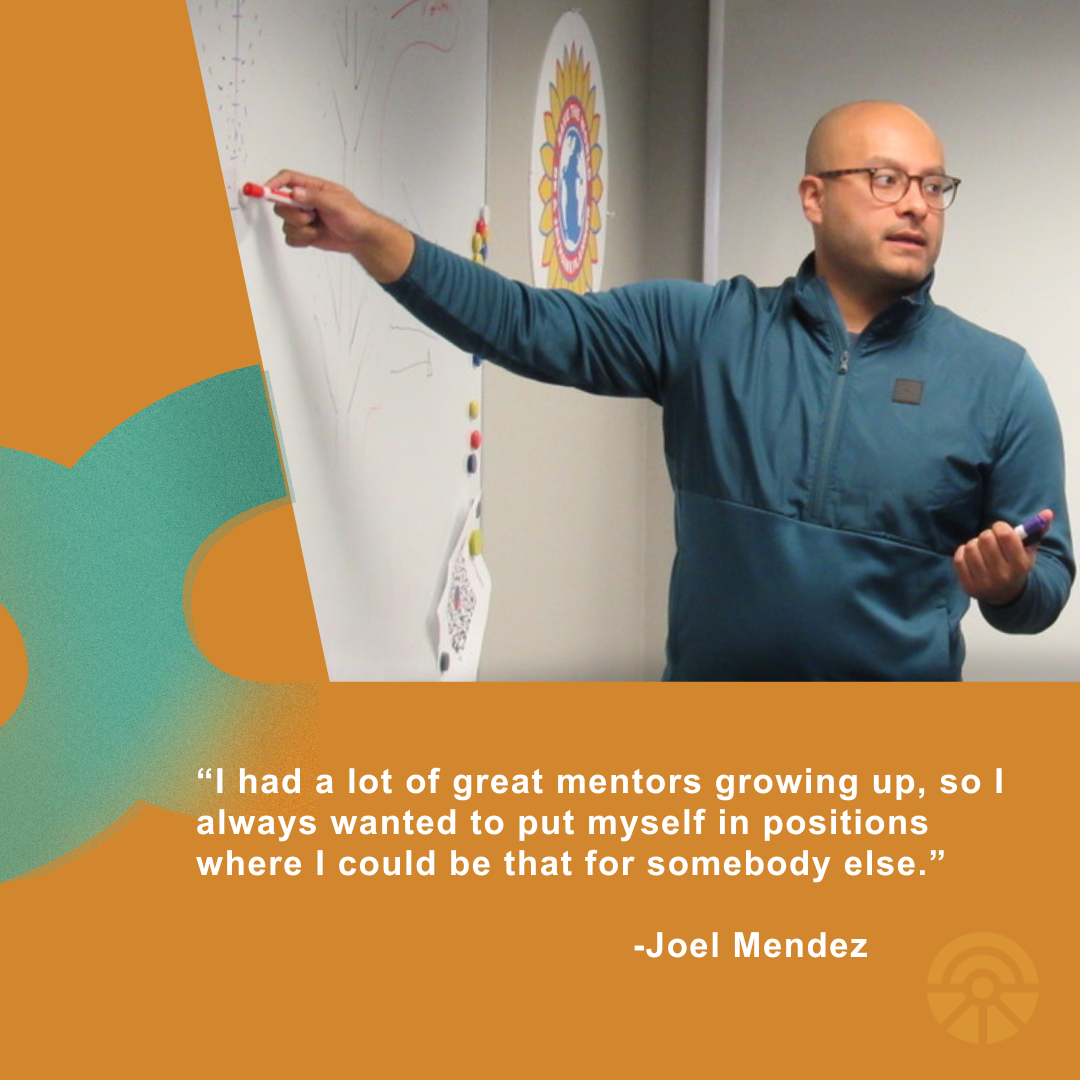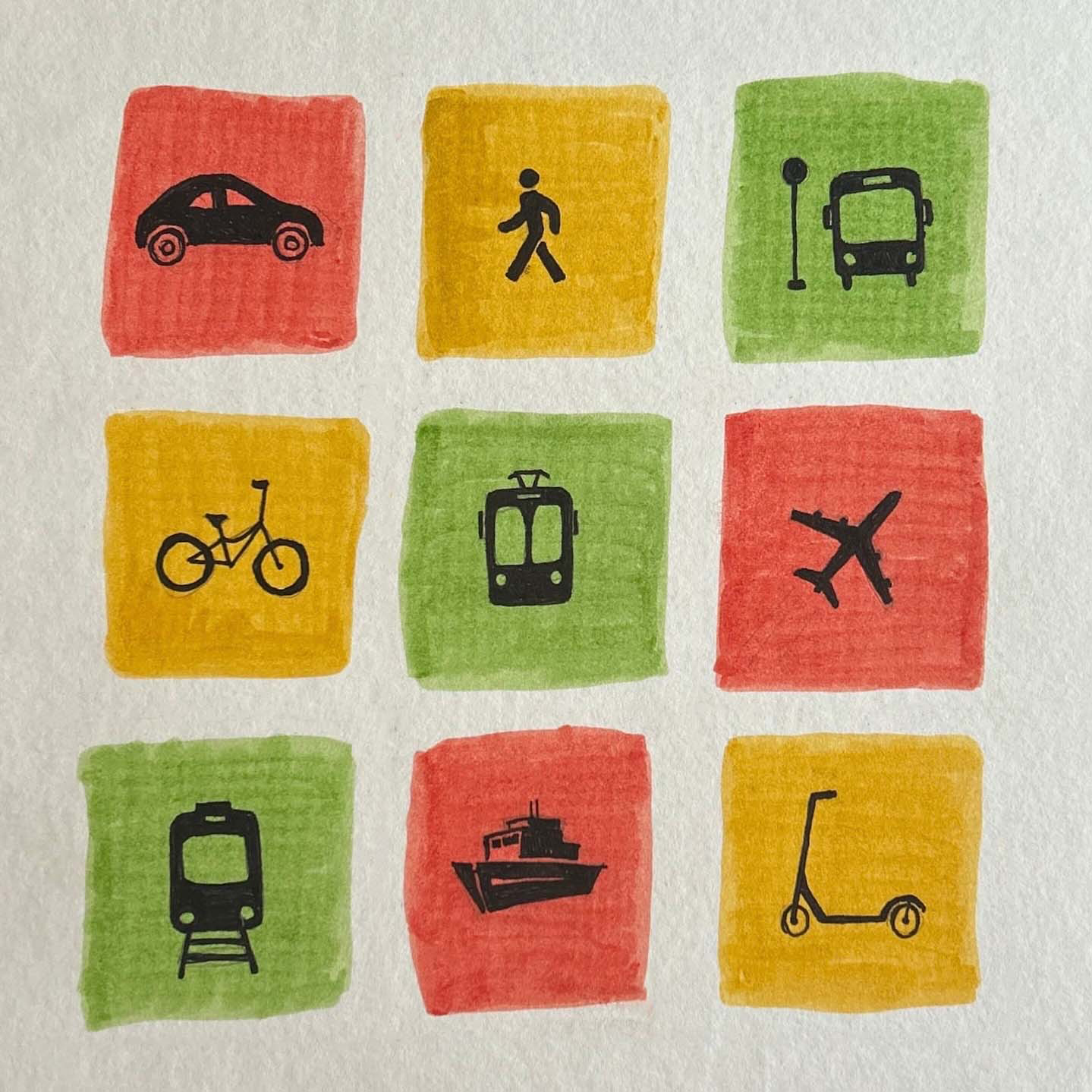
Dozens of faculty mentors support students on the ARISE project for the Research Experiences for Undergraduates (REU) program. To learn more about these mentors, University of Kansas Freshman Joshua Alston recently interviewed Assistant Professor Joel Mendez.
Let’s start off by telling me about yourself.
My name is Joel Mendez. I’m an assistant professor in urban planning here at KU. I graduated from Iowa State University with my bachelor’s in urban planning, my master’s at Texas A&M and my doctorate at Florida State University. I’m originally from Aurora, Illinois, which is outside of Chicago.
What got you into being a mentor for the REU program?
I always enjoy engaging with students; it’s one of my favorite things to do. You know, they’re excited, they’re figuring out what they want to do next and it’s nice to be a part of supporting them in meeting their goals. I had a lot of great mentors growing up, so I always wanted to put myself in positions where I could be that for somebody else. And I think that this program helps me do just that.
You have your doctorate, you have your bachelor’s, you have all these different qualifications that help you become a great candidate to be a mentor. How do you think having all these accolades shaped how you connect with students?
I feel that having those advanced degrees in my focus area makes me knowledgeable about some things, things that students that I am working with are also interested in. I think that this helps me connect with these students. I’m able to provide insight in some subject areas, which can be impactful as many of them are still trying to figure out what path to pursue, what to study. . What also helps is having a skill set when it comes to data analysis. A lot of the work that we do with research requires the implementation of varying methods. The knowledge I have, which was developed throughout my studies, helps me aid students in the development of different tools that they can eventually deploy their future work. I think that this provides me with an additional opportunity to connect with them in that way. I guess the theme here is that being a resource for students, which is supported via the qualifications you mentioned, has helped me connect with them in many ways.
What do you hope that the students you work with learn from you?
If I could help them develop any tool that they could find useful in the future, whether it be knowledge in terms of how to conduct a literature review or how to do a particular statistical analysis, I think that that would be great. Just anything that can help prepare them for their future profession. But what can be more rewarding for me, which is something I spent a lot of time doing this summer, is just helping my students figure out what’s next, either professionally and/or academically. Providing guidance and support in that way and helping identify and provide clarity on potential paths forward , I think that’s what’s most rewarding.
Tell me a little more about the research that you guys conducted as part of the ARISE REU program. You said you do urban planning; how did that tie into the research that you guys did over the summer?
So, with the research that Maddie Souser helped me with, we were analyzing policies implemented by cities and counties that pertain to how roads get cleared after a snow or ice storm. Do they consider equity? So, in order to kind of get a sense of what’s being done right now, we needed to reach out to, I think it was a total of 150 entities to get a sense of what their policy is. So, Maddie was instrumental in helping us identify the appropriate parties that we needed to reach out to. She also helped us, once we gathered the necessary policy documents, interpret policies and pull-out necessary information which helped us answer our research questions. So, it’s very much tied to urban planning, in the sense of focusing on infrastructure, focusing on communities, focusing on equity, Maddie was a big part of that effort.
What did your day-to-day task list look like? What kind of tasks would you assign your mentee?
It was a lot of engagement, reaching out to different decision makers within different cities and counties throughout the United States, gathering necessary policy documents from them. And once these documents were gathered, doing a content analysis of sorts where we’re reviewing these documents, identifying major themes that emerge because of this evaluation, as it pertains to the criteria that folks use to make decisions specific to the clearance of roads and the presence of equity in these decisions. So, it was a lot of reaching out and analyzing policy documents.
What do you teach here at KU?
I teach urban planning, anything associated with transportation planning and policy. Also, equity and economic development. My classes typically focus on those three areas.
What got you into urban planning? What factors in your life led up to this point in your career?
I initially got into architecture, because growing up around Chicago, I wanted to design buildings and such. But you know, once you get into school, you start taking the classes, maybe you find out that a particular major isn’t really what you thought it was. That happened to me. So, I just started to explore other areas. It so happened that the School of Architecture at my undergraduate institution also housed the urban planning program. I took the opportunity to take some urban planning courses and I really enjoyed them. So, I just continued taking them, and branched out and focused on different areas and found the area that spoke the most to me, transportation. So that’s how I got my start in this.
***
Photo credit: Makenna Dawson

Drawn to urban planning
KU student Makenna Dawson made these drawings inspired by Professor Mendez’s cross-cutting resesarch on transportation, equity, and economic development.
